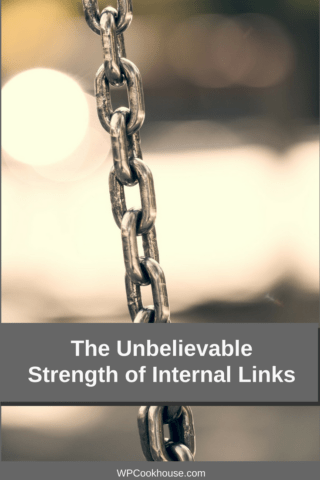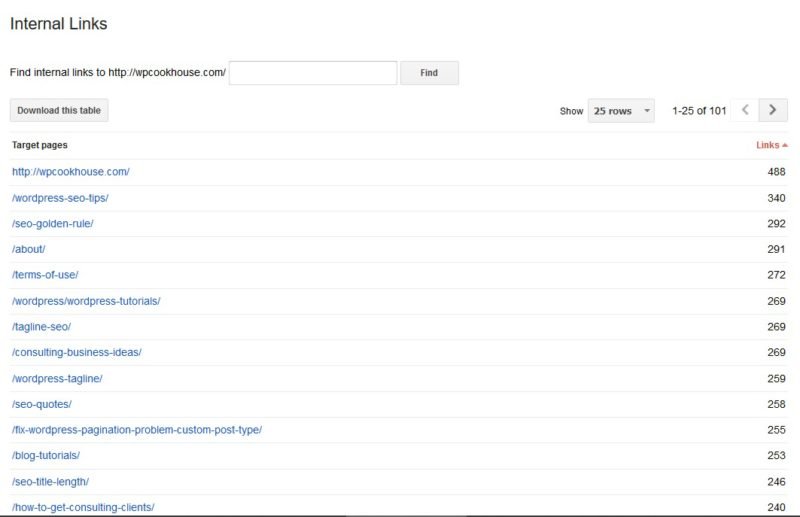Internal links are a truly unfairly neglected feature of search engine optimization. If you read articles on SEO, you will find internal links being hardly mentioned at all. But if you use this technique carefully, internal links can work their magic and it costs nothing at all.
Why Do You Hear So Little About Internal Links?
I really must mention this. The internet is buzzing with all kinds of wonders of SEO, online marketing and affiliate marketing. You might have the feeling that everybody knows how to SEO. All you need to do just open your pockets, spend a little money, and your magic SEO expert will rank your website on the first page of Google. At the same time, you can hear very little on the importance of internal links in SEO, even if they are a pretty powerful tool where no pricey experts and magic techniques are needed.
I think the main reason you don’t here too much about internal links is that you can’t really charge someone a couple grands every month just to tell them to link to other pages in their website. Yes, for those whose business is to SEO your website, it does not bring in any money to talk about internal links.

What Are Internal Links?
An internal link is any link pointing from one page to another within your website. The emphasis is here on within the same website. I.e., you just simply linking one page from another on the same domain.
There are many different types of internal links, and their importance and SEO value can vary significantly. Just to give you a few examples:
- Links in menus. Clickable menu items, redirecting to category pages, pages. This actually covers all menu items that navigate within the site to another page.
- Links in site-wide content, e.g. sidebars, footers etc., pointing to any internal content on the same domains.
- Links from the content, pointing to another page on the same site.
Who Do You See In The Mirror? Why Are Internal Links So Important In SEO?

External links: Look at that pretty girl!
If I wanted to think up a real life example, I would say external link building (i.e. what people generally call link building) is something similar in essence to a girl wanting the world around her to think she is beautiful. She wants people in the street to notice her and think she is gorgeous. And in the end if enough people thinks you are pretty, finally every people will think you are pretty. This is how link building works too (and of course so does showbiz).
Link building means putting a link on a different website, pointing to yours. Links to your site from another website in SEO mean that someone else is recommending your content, someone else’s saying your good or worth to check out. In best case scenario this link appears voluntarily, without you pushing the other site’s owner in any ways.
These external links are important since they can drive direct traffic and visitors to your site. But also, they have a great value for optimization. SEO professionals, but Google itself also, tell us that the anchor text (which is the visible, clickable part of the link) contains important optimization information. Search engines use this text to decide what the linked page is about and why is it useful for the visitors.
Here is an example. Let’s say you have a gardening website. Links pointing to that website can carry different “messages” as anchor text. As an example, you can use “click here“, or you can use “gardening tips” instead. Evidently, if you use “gardening tips” in the anchor text, you are much more likely to get better results for the keyword “gardening tips” with Google.

What Does The Mirror Say?
And here is the trick. How can the above mentioned girl make everyone else believe that she is pretty if she sees an ugly duckling in the mirror? If she thinks about herself as someone who is a little bit plain looking, unattractive, and definitely not satisfied with herself? But if it is so, what are the chances that anyone else in town will think of her as a beauty queen? Not much, right?
Internal links, that is linking one page from another within your website is like saying ‘Hey world, look here, what a grate content I have here‘. The more you link a page on your website, the more you recommend it to others.
So if you don’t use internal linking, here is how Google will think like: You don’t think that your contents is good enough even for you to link to?. Or if using dumb anchor text, it would be something like You just saying that article is about “clicking here” or “reading more”? Then why should I? Why should Google value a content that’s not important for their publisher to link to with relevant information?
Where Does This Leave Us?
This actually means if you handle your internal links correctly, you’ll have excellent chances to achieve good results in SEO. Partly, because this way you can make your visitors remain on your website. They will read an article and see a link in the content on something interesting, and then they will click and continue reading other content.
On the other hand, with a good internal link structure and wisely using anchor text in those links, you yourself can tell Google what you think your pages are about, and how important they are.
The best evidence to support this is that there’s even a whole report in Google Search Console, called Internal Links, to display your actual internal links.

How To Use Internal Links For Best SEO Results?
- Use your menus, sidebars to present your content to the visitors. It always puzzled me seeing people putting partners names, visitor counters and other totally useless links pointing to other websites in their sidebars.
- The most precious of all precious: links from your own content. The most valuable links are the ones pointing form the content of your page to another page. Use this feature wisely. Whenever you mention something that you have another article about, simply link it with the right keyword.
- Use keywords in the anchor texts. Use keywords with menus and content lists. Everyone is used to menu items like “About us”, “Contacts”, “Services” and so on. But do they really work? All right, it is not always easy to come up with creative menu items that convey information as anchor text. Nevertheless, try to be creative and if nothing else works, simply put the keyword in the link title. But you can easily include your keyword in your links in the content. Simply stop using “Click here”, “More info” and text that doesn’t convey any information about the page being linked. Instead, use the exact phrase that you want to rank your linked page for.
- Use a variation of keywords in different internal links. As an example, I can link to the same page with different links like WordPress SEO Tips, WordPress SEO, SEO advice for WordPress users etc. By doing so, Google can see what words are relevant to your page being linked.
- The more internal links you point to a page, the more important you think it is, and Google will understand this information. So try to link to your most important pages as many times as you can. And also don’t link to your less important pages – like About Us, Privacy Policy, Login etc. – several times from all of your pages.
It is easy to see that to accomplish all the above mentioned, you don’t need to hire a professional SEO. You can do it or your colleagues can do it too. Really anyone who writes the articles for your website can apply these rules. Try using internal links in your content as suggested and watch your numbers improve!

